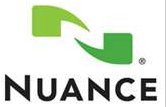 Today Nuance Communications launched a “portfolio” of software products and services to address every enterprise’s need to deliver on the promise of a mobile strategy. Call Intercept and Mobile Voice Control are the first two members of the “Mobile Advantage” portfolio that are available today. The former, which is available on Android-based smartphones, automatically launches a company’s self-service app after a customer dials its self-service phone number. Nuance thinks of it as a “reminder” to customers who have downloaded the app that they always have the option to use it (for routine interactions like checking a balance or topping off minutes) or they can complete a call to a contact center agent.
Today Nuance Communications launched a “portfolio” of software products and services to address every enterprise’s need to deliver on the promise of a mobile strategy. Call Intercept and Mobile Voice Control are the first two members of the “Mobile Advantage” portfolio that are available today. The former, which is available on Android-based smartphones, automatically launches a company’s self-service app after a customer dials its self-service phone number. Nuance thinks of it as a “reminder” to customers who have downloaded the app that they always have the option to use it (for routine interactions like checking a balance or topping off minutes) or they can complete a call to a contact center agent.
The latter app, Mobile Voice Control, provides companies with the ability to employ Dragon Speech recognition to speech enable popular applications. It is the same resource that is integrated into Siri, Price Check by Amazon, Ask for iPhone and many other speech enabled mobile services.
The complete Mobile Advantage Portfolio will add more natural language processing under the name NaturallyMobile and stronger authentication mechanisms employing the capabilities of Nuance’s line of voice biometric based speaker verification. The objective is to provide its enterprise customers with foundational resources to support a better mobile experience for their customers.
I agree with the company’s researchers, product managers and general management with the belief that the combination of strong authentication, accurate speech recognition and better language understanding supports better conversational commerce. Opus Research’s sees conversational commerce as grounded in “Trust, Transparency and Convenience.” Nuance has distilled a parallel set of objectives for Mobile Advantage by supporting “discovery, accessibility, connectivity and simplicity.” If done right, they amount to the same thing.
Nuance is pushing ahead with the development of a platform and service architectxure with the working name of “Prodigy” to capture organize the components of a better mobile customer experience. The Mobile Advantage portfolio is the starting point. It brings together voice control with call steering while taking into account understanding and recognition of each individual’s intent. DragonGo! is an excellent precursor product for a high-quality customer experience. It combines accurate speech recognition with an engine that does a good job of imputing the speaker’s intent and then linking directly to a mobile resource that addresses the user’s need.
The number of targets is comprehensive (around 200), yet constrained, in that it has deeper integrations to popular, relevant destinations like Yelp!, Google Maps, Fandango, OpenTable. It recognizes the difference between an instruction and information that can be used for form filling. It also provides for user iteration. If it delivers query results from Yelp! when Google Maps would be more appropriate, it allows for the user to move a visual carousel to the more appropriate resource.
It is not hard to imagine how an enterprise customer care app can be adapted to the Dragon Go! approach. It is all about recognizing the customer’s intent and delivering the right resource and doing as much as possible in a user-controlled (aka self-service) model.
Categories: Articles

 NiCE Interactions 2025: Agentic AI, Better Data, and a Whole Lot of Partnership
NiCE Interactions 2025: Agentic AI, Better Data, and a Whole Lot of Partnership  Getting It Right: What AI Agents Actually Mean for Customer Support (Webinar)
Getting It Right: What AI Agents Actually Mean for Customer Support (Webinar)  Beyond the Basics: How AI Is Transforming B2B Sales at TP
Beyond the Basics: How AI Is Transforming B2B Sales at TP  Five9 Launches Agentic CX: Toward AI Agents That Reason and Act
Five9 Launches Agentic CX: Toward AI Agents That Reason and Act